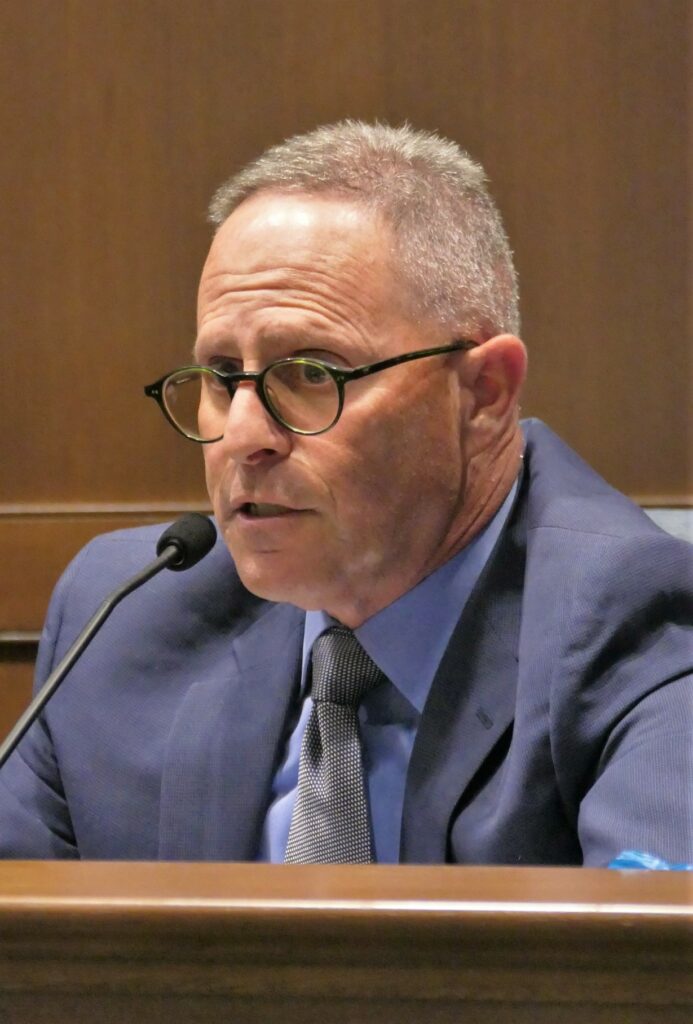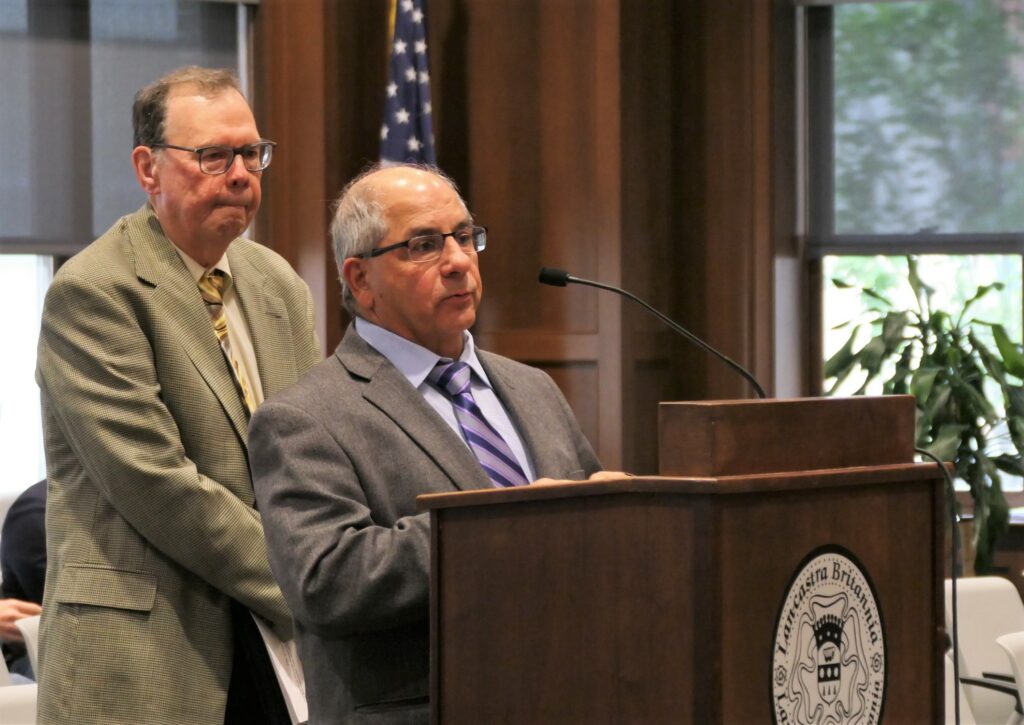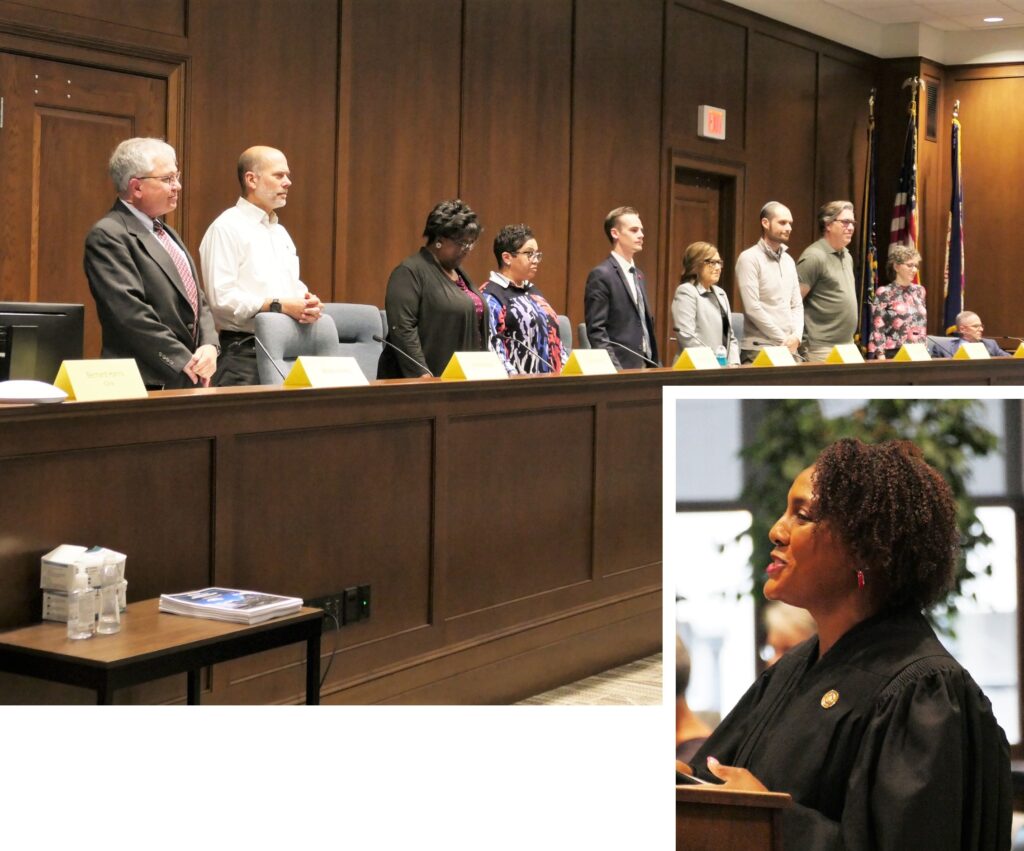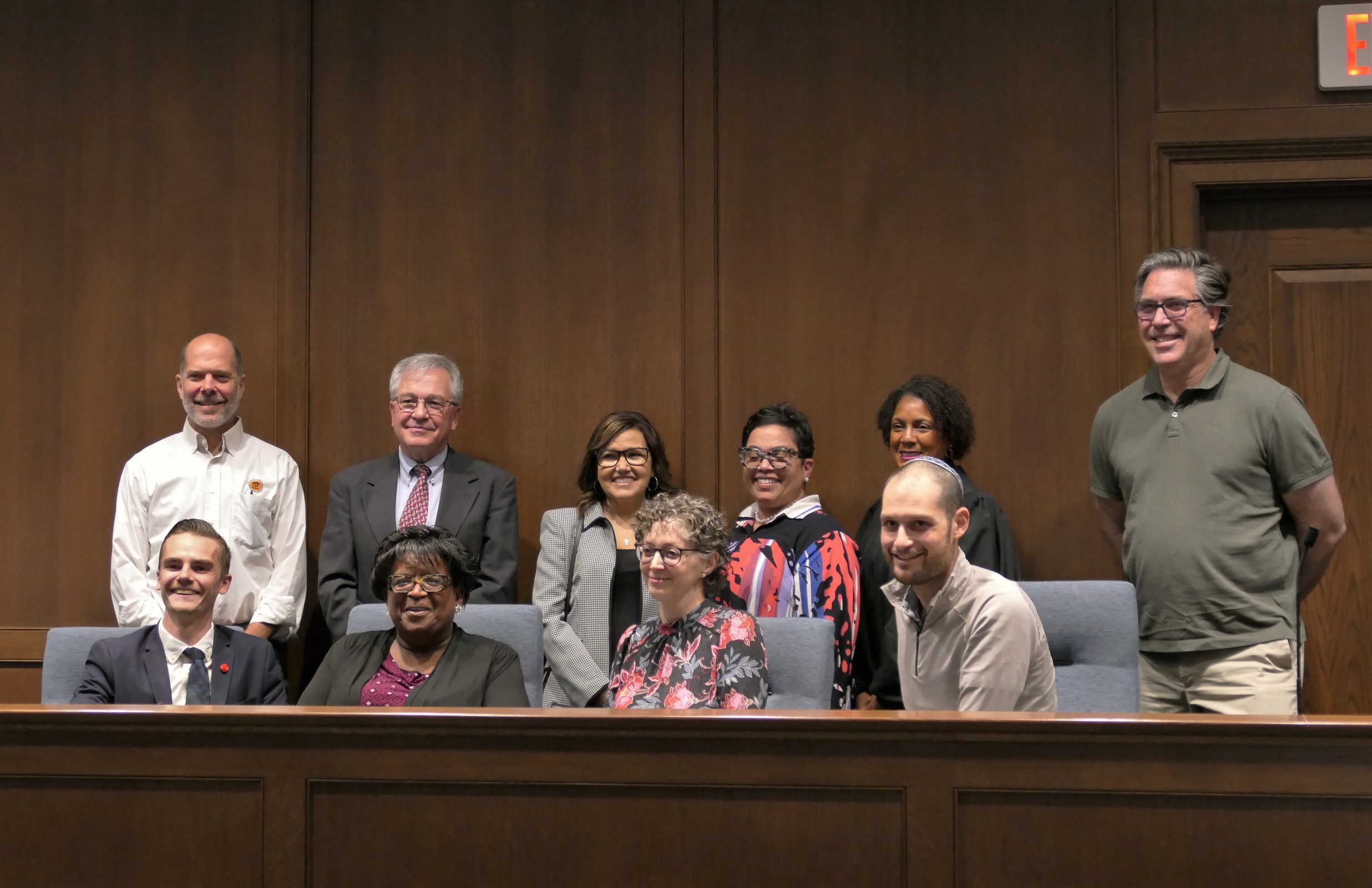“Tonight is truly a historic moment for our city,” Mayor Danene Sorace told the nine members of Lancaster’s home rule study commission.
The mayor spoke at the outset of the commission’s inaugural meeting Thursday evening. During the ensuing 70 minutes or so, the commissioners:
- Were sworn in by Magisterial District Judge Jodie Richardson.
- Appointed a chairperson, Brian Adams; and a vice chair, Amy Ruffo.
- Scheduled monthly meetings at 7 p.m. every first Thursday of the month beginning in July, to be held in City Council chambers at City Hall. They are a starting point, city Solicitor Barry Handwerger noted: The commission will be free to schedule additional duly advertised meetings elsewhere and at other times.
- Adopted Robert’s Rules of Order for the conduct of commission meetings.
- Agreed to contract with the Pennsylvania Economy League, a nonprofit consultant, for administrative and research services at a flat monthly rate of $3,250.
Mayor Danene Sorace announced the idea of a home rule study commission in her State of the City address in January. In May, city primary voters approved forming the commission and selected its members from 17 candidates.
Over the next six months, the commission is to evaluate city operations and finances and determine if drafting a home rule charter makes sense. If they decide to move forward, they have a year to draft the document, which would be put to a voter referendum in November 2024.
Handwerger, the solicitor, conducted the whole of Thursday’s meeting, a task he will hand off to Adams going forward.
Next week, Handwerger will provide commission members an orientation via Zoom, covering standard meeting procedures, Pennsylvania’s Open Meetings and Right-to-Know laws, and other basic information they will need to conduct their work effectively and legally. Until then, he cautioned members not to communicate or commence any commission-related activities.
The commission is independent, and it’s up to members to set the parameters for their work, Sorace said. It’s also they who will set the tone, she said, adding she’s confident it will be one of “collegiality and curiosity.”

The city, she said, will provide a range of support: Legal advice from Handwerger; the services of City Clerk Bernard Harris to take minutes and post videos online of commission meetings held in council chambers; space on the city’s website; assistance in preparing the commission’s budgets and financial reports.
Meanwhile, the state Department of Community and Economic Development provides grants to support home rule studies. The city has enough funding from a previous grant for the commission’s first one to two months and will apply for more on its behalf.
“Our aim is to help advance the work both cost-effectively and efficiently, at your direction,” Sorace said.
On Thursday, Adams’ appointment as chair was by a vote of 7-2, with members Darlene Byrd and Tony Dastra voting “no.” The other votes were unanimous.
Commission members spent about half an hour debating whether to move forward with hiring the Pennsylvania Economy League, or PEL, as its consultant. Several had reservations: Byrd said she’d like to know how PEL’s $3,250 fee stacks up against its peers, while Dastra proposed tabling the idea for a month to consider other options and explore funding opportunities.
Dastra’s motion failed for lack of a second. With only six months for the first phase of its work, the commission can’t afford the delay, Peter Barber said.

PEL’s experience with home rule initiatives runs the gamut, Senior Fellow Gerald Cross assured the commission. It has assisted tiny boroughs and large cities, rural townships and suburban ones, municipalities already in financial distress and those taking proactive steps to avoid it.
“We are able to walk you through the process,” he said. The flat-fee arrangement, he said, means that the commission can call on PEL for whatever it needs without worrying about running up a tab, the way it might under a billable-hour framework.
Kelly Robertson, executive director of DCED’s Center for Local Government Services, said PEL has been very successful and is highly respected.
Carl Feldman said DCED’s endorsement of PEL gives him confidence. He noted that the commission’s arrangement with PEL only covers the initial 6-month evaluation phase, and if members aren’t satisfied, they can end it and hire another consultant.







